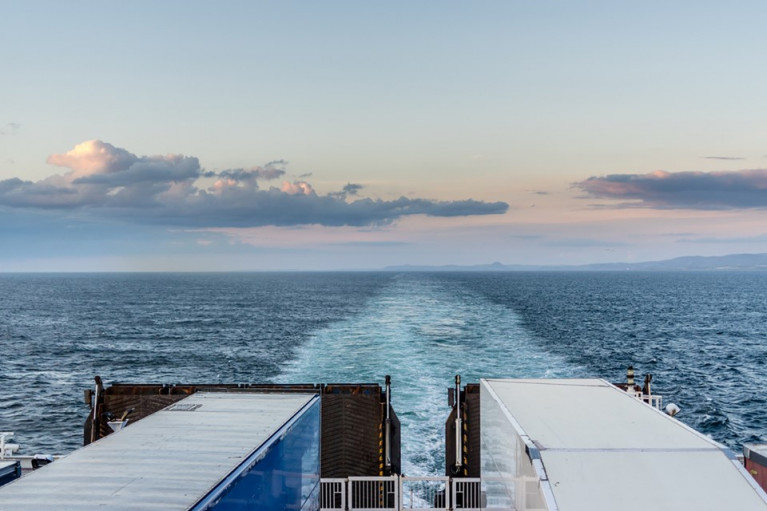Displaying items by tag: Europe's Ports
After the serious attacks on ships, mainly, but not only container ships, in the Red Sea by the Houthi movement, has led to shipping lines in deciding to redirect their ships around the Cape of Good Hope, South Africa.
The move was in order to avoid the shipping operators risks of attacks to both vessel and crew.
With these attacks the rebels are seriously hampering the traffic through the Suez Canal which is a strategic waterway and the fastest shipping route between Asia and Europe. The rerouting adds another 3,000-3,500 nautical miles (6,000km) to this route and can make the voyage Asia- Europe 8 to 15 days longer, depending on the shipping segment.
The European Sea Ports Organisation (ESPO) fully shares the safety concerns of the shipping lines and the need to protect the crews and avoid any risk of attack on vessels. Europe’s ports underline their strong concerns about this escalating situation, which is also causing important disruptions in the supply chain and risks to hamper the just in time deliveries to certain industries in the short run. Ports moreover see container rates going up steeply, and reaching again the extreme high rates that were being applied by shipping lines during COVID.
“The situation in the Red Sea jeopardises the passage through the Suez Canal, which is the main maritime artery connecting Asia and Europe. This crisis is once again creating major supply chain disruptions, and is adding an element of uncertainty to an already very difficult geo-economic and geopolitical environment. The longer routes, and possible re-organisation of calls in Europe will be impacting ports, which have to adapt and be flexible in view of keeping the supply chains going".says Zeno D’Agostino, chair of ESPO.
He added "In the case of the Ever Given, we were faced with an unfortunate accident and the solution depended on technical and operational expertise. Now, we are facing a geopolitical hindrance of a major commercial trading route, which makes it more difficult and unpredictable to solve.”
"Transport Keeps Us Going" in Times of COVID-19
“Transport keeps us going” is the slogan which the European Sea Ports Organisation (ESPO), together with 33 organisations has issued a Declaration stressing the essential role transport is playing in the corona crisis.
"Transport and logistics play a crucial role in the supply of essential goods in this critical period. To ensure that transport can continue to keep us going, the free flow of goods between Member States must be guaranteed. We must also support and encourage all the people working in transport. Their contribution in overcoming this crisis is vital. In times of emergency, ports have an essential role in providing citizens, health services and businesses with the goods and materials they need. Europe’s ports take this public responsibility very seriously. We hope the Member States are following the recommendations of the Commission to ensure that goods keep moving in Europe, in the interest of every single EU citizen,” comments Isabelle Ryckbost, ESPO Secretary General.
On 11 March 2020, the World Health Organization (WHO) declared the COVID-19 a pandemic and governments worldwide have taken wide-ranging measures to contain the spread of the virus.
The transport sector has a crucial role to play in the supply of goods, in particular medicines, medical devices, food and other essential commodities needed to overcome this crisis. The transport sector also proves to be a vital instrument in these times where many European citizens are restricted in their mobility.
The undersigned European associations representing transport, infrastructure managers, operators, workers in all transport modes and logistics, contractors, local and regional authorities, logistics service providers, shippers, users and equipment suppliers in the maritime, port, inland waterways, railways, road, cycling, aviation and intermodal sectors, as well as supporting industries and companies, jointly endorse the following statement:
- Highlight the key role transport and logistics are playing for the supply of essential goods in this critical period: stress that transport infrastructure is in this respect critical infrastructure;
- Show their respect and support to all workers in the supply chain enabling the continuity of transport services, the movement of goods and essential commodities, as well as the repatriation of stranded citizens, and thus playing a major role in helping the European citizens to overcome this crisis;
- Call on the Member States to enable smooth border crossings for freight transport, both intra-EU and with third countries, in this respect fully support the establishment of green freight lanes in coordination with the concerned transport stakeholders;
- Support the measures and actions taken on EU-level and by national governments to contain the spread of COVID-19 and call on the Members States to coordinate their response to the COVID-19 and to follow the European Commission’s guidelines on border management;
- Reiterate the importance of protecting the health and safety of transport workers, notably through personal protective equipment, as well as access to clean and disinfected sanitary facilities, food and drinks;
- Highlight that the transport and logistics sectors are based on a physical work force and call on the European Commission and the Member States to facilitate its mobility, including repatriation of the transport work force;
- Urge the policy makers to assist the heavily affected transport sector in its recovery, to ensure future connectivity for both passengers and freight, and to revitalise the arteries of the internal market as soon as the crisis is over.































































